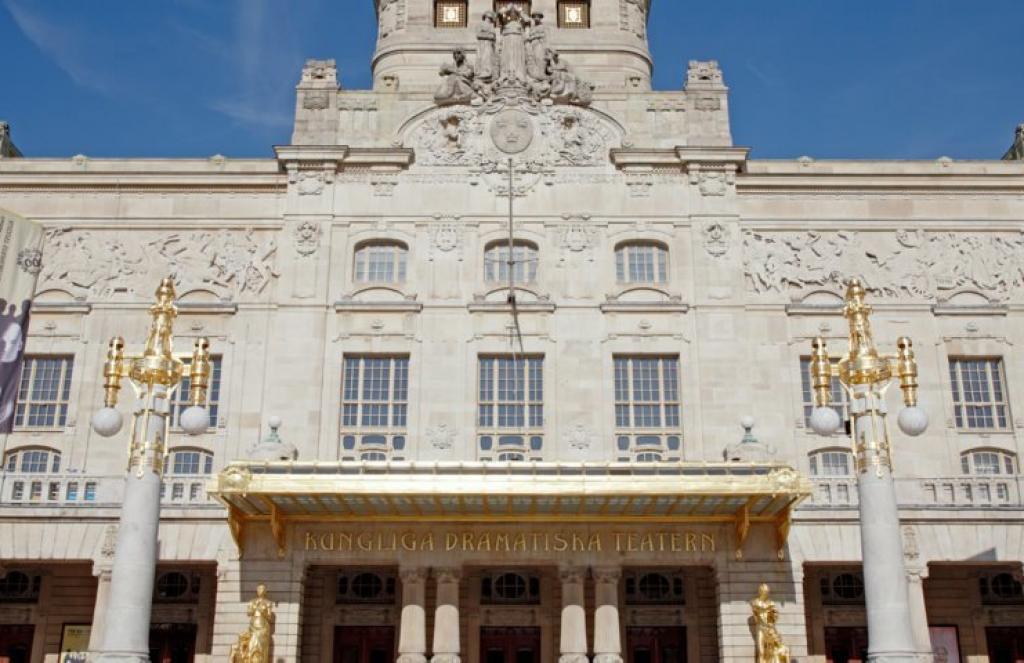Thessaloniki gets ready for its metro launch in November
The underground rapid transit lines have been under construction for almost two decades due to various project delays
 TheMayor.EU logo
TheMayor.EU logo 
Royal Dramatic Theatre in Stockholm, Source: Royal Dramatic Theatre in Stockholm. Photo visitstockholm.com
Up to 500 people could be allowed at seated cultural performances and sports competitions
Reacting to a government request, Sweden's Public Health Agency has recommended a new limit of 500 people at certain seated events, on condition that all spectators sit at least one metre apart, reported Radio Sweden. The current ceiling of attendance was 50 people.
Last week the government asked the agency to propose a new seating limit to let cultural and sporting events go ahead with attendance beyond the 50 person maximum set in March to curb the spread of the novel coronavirus. With the 50 person limit in place, theatres and other entertainment venues could not generate profit and have been forced to close.
Sweden's state epidemiologist Anders Tegnell said during Thursday's public health agency briefing the 500 person limit will apply only to indoor or outdoor venues with numbered seating. The effects of the updated regulation must be closely monitored, and depending on the situation, the limit may be raised further, he added.
Unlike most EU nations, Sweden, with a population of just over 10 million, has never imposed strict lockdowns, keeping cafes, bars and restaurants, junior schools and most businesses open while encouraging social distancing. On the other hand, public events of more than 50 people have been banned, as well as visits to elderly care homes – prime Covid-19 hotspots.
Tegnell has reaped much criticism for his agency’s lenient approach to the epidemic. Lately, he acknowledged that exposing the elderly to the coronavirus due to lax measures at care homes had been a tragic mistake but insisted that closing society and the economy for prolonged periods would do more harm than good.
Ironically, the economy of Finland, a country which has imposed stringent restrictions, is reported to fare much better than the Swedish economy post-lockdown. And, according to the latest statistics, Sweden’s Covid-19 death toll stands at 5 820 since the start of the outbreak, in stark contrast to the performance of the country’s Nordic neighbours.

The underground rapid transit lines have been under construction for almost two decades due to various project delays

Now you can get your wine in Talence by paying directly in Bitcoin

That’s because the state has to spend money on updating the railway infrastructure rather than subsidizing the cost of the popular pass

Rethinking renewable energy sources for the urban landscape

The examples, compiled by Beyond Fossil Fuels, can inform and inspire communities and entrepreneurs that still feel trepidation at the prospect of energy transition

Now you can get your wine in Talence by paying directly in Bitcoin

The 10th European Conference on Sustainable Cities and Towns (ESCT) sets the stage for stronger cooperation between the EU, national and local level to fast track Europe's transition to climate neutrality.

At least, that’s the promise made by the mayor of Paris, Anne Hidalgo

The underground rapid transit lines have been under construction for almost two decades due to various project delays

At least, that’s the promise made by the mayor of Paris, Anne Hidalgo

Hostal de Pinós is located in the geographical centre of the autonomous region

Despite its church-y name, the district has long been known as the hangout spot for the artsy crowds

Urban dwellers across the EU are having a say in making their surroundings friendlier to people and the environment.

Forests in the EU can help green the European construction industry and bolster a continent-wide push for architectural improvements.

Apply by 10 November and do your part for the transformation of European public spaces

An interview with the Mayor of a Polish city that seeks to reinvent itself

An interview with the newly elected ICLEI President and Mayor of Malmö

A conversation with the Mayor of Lisbon about the spirit and dimensions of innovation present in the Portuguese capital














